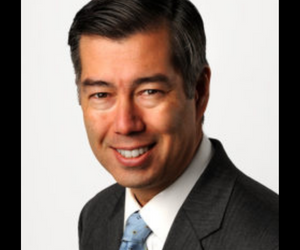Breast Cancer: Don’t Over diagnose, Do Improve Lifestyle
Avoid Overdiagnosis
When you screen a healthy population for breast cancer, you’re going to get over-diagnosis. This has become particularly evident. As screening practices switched from film-based mammography to digital mammography, we now can detect more small lesions. Only some of those small lesions that we are now detecting will grow into aggressive cancers. For 10-30% of the cases we find a lesion, we don’t necessarily need to cut it out or radiate it; we could follow it to see if it increases in size in a short period of time.
Overdiagnosis is particularly important for older women to consider. We don’t want the elderly woman to feel traumatized by being treated for an indolent lesion; especially when it will not prolong her life and increase her anxiety. Once she’s had lumpectomy and radiation for an indolent lesion, she’ll have follow-up tests for the rest of her life. Overdiagnosis means that she’s likely to endure all this for a condition that might have caused her very little trouble the rest of her life.
To Avoid Overdiagnosis, Only Do Risk-Based Screening
At the Breast Cancer Surveillance Consortium, we’ve developed the free BCSC Risk Calculator. It can be accessed from https://tools.bcsc-scc.org/bc5yearrisk/calculator.htm and downloaded . It’s also available for download to your iPhone from https://itunes.apple.com/us/app/bcsc-risk-calculator/id919034661?mt=8.
One of the goals of the Risk Calculator is to encourage health care providers to assess a woman’s risk before deciding to screen for breast cancer. We now know that it’s common for women to over- or underestimate breast cancer risk. With this tool, health care providers will have a much more accurate picture of a woman’s individual risk; they can then delay screening to a later age and/or screen those who are at low risk for breast cancer less often.
Instead of merely going by age, we can now also take into account other aspects of the patient. We can consider the individual’s ethnicity, breast density, and whether she’s had a first-degree relative with breast cancer. Another thing we could consider is whether she’s had a breast biopsy, and if so, the breast biopsy outcome. The Risk Calculator is free, simple, easy-to-use, and can decrease the risk of overdiagnosis by tailoring screening to a woman’s risk of breast cancer.
We Need a New Paradigm for Responding to Small Lesions
As it is, all small lesions are biopsied to determine if they are cancer. However, some lesions put women at risk for breast cancer, but are not themselves cancer. In the same sense that moderate hypertension is a risk factor for stroke, but hypertension is a condition, not a disease. Whether it’s a small lesion or moderate hypertension, the symptoms bear watching, but they’re symptoms, not the disease itself that requires aggressive treatment. Research is underway to monitor small lesions rather than removing all of them.
Lifestyle Modifications are Important for preventing Breast Cancer
The data are clear: if a woman is overweight or obese and reduces her weight, she’ll reduce her risk of breast cancer.
The data are also clear that exercise is important for risk reduction. She needs to be physically active for at least 20 or 30 minutes for 5 to 7 days per week. A brisk walk is good, taking the stairs, and vigorous housework such as gardening, vacuuming or sweeping will also help. Her goal should be movement as opposed to just sitting.
As for diet, there aren’t enough large-scale diet studies to allow us to say which diet is most protective against breast cancer. A Mediterranean Diet, one that’s high in fruits, vegetables, whole grains, legumes, and nuts, seems to hold some promise, but we aren’t in a position right now to be sure. What we do know is: if your patient is overweight, she needs to consume fewer calories, and whether she’s overweight or not, she needs to exercise 5 to 7 days a week.
Search Articles
Latest Articles
Healing Ukraine’s Hidden Wounds: AI and Women’s Organizations Offer Hope
https://foreignpress.org/journalism-resources/healing-ukraines-hidden-wounds-ai-and-womens-organizations-offer-hope Publication –foreignpress.org
Who’s Leading the Digital World? Surprise—It’s Estonia
https://foreignpress.org/journalism-resources/whos-leading-the-digital-world-surpriseits-estonia Publication –foreignpress.org
United Nations Women’s Peace & Humanitarian Fund Launches Global Luminary Campaign With Advocate Kristen Bell
https://jameslanepost.com/united-nations-womens-peace-humanitarian-fund-launches-global-luminary-campaign-with-advocate-kristen-bell/02/17/2025/Hamptons-News-Happenings Publication –jameslanepost.com
A Breakthrough in Schizophrenia Treatment
https://foreignpress.org/journalism-resources/a-breakthrough-in-schizophrenia-treatment Publication –foreignpress.org
Subscribe to Updates
About Author

Mitzi Perdue is the widow of the poultry magnate, Frank Perdue. She’s the author of How To Make Your Family Business Last and 52 Tips to Combat Human Trafficking. Contact her at www.MitziPerdue.com
All Articles
An Economic Time Bomb for Life Insurance Owners
An Economic Time Bomb for Life Insurance Owners View ArticleSearch ArticlesLatest ArticlesSubscribe to UpdatesAbout AuthorMitzi Perdue is the widow of the poultry magnate, Frank Perdue. She’s the author of How To Make Your Family Business Last and 52 Tips to Combat...
A System for Finding Family Business Blind Spots
A System for Finding Family Business Blind SpotsThe Rosy Periwinkle The rosy periwinkle doesn’t look like a plant that’s worth $200 million a year. Except that its flowers are pink, it resembles the blue periwinkle commonly used as ground cover. To the desperate...
My Favorite Post for This Year! Carmen, the Beautiful Carmen
My Favorite Post for This Year! Carmen, the Beautiful CarmenFor a peek inside the fecund mind of legendary hedge fund manager Roy Niederhoffer, come take a look at his analysis of the opera Carmen. Guaranteed, you’ll never before have seen such an original take on the...
A New Way to Engage Next Gens in the Family Business
A New Way to Engage Next Gens in the Family BusinessWhat if Facebook met LinkedIn and decided to have a Family Business baby? In Esrock’s view, people in family businesses have a need for the kinds of information and encouragement that are unique to members of family...
A Not-Secret Sauce for Investing
A Not-Secret Sauce for InvestingYou would think that doing business in Brazil would be an above-average risk proposition, right? Well maybe. But Matthew Wilkens has seen a truly impressive not-so-secret sauce that creates a spectacular exception. Even better, since...
Is the Stock Market Long-in-the-Tooth?
Is the Stock Market Long-in-the-Tooth?Is the current market long-in-the-tooth? Should you pull back because it’s unreasonable to expect the market to keep on reaching new highs? “Not necessarily,” answers Eric Uchida Henderson, CFA and Chief Investment Officer of...





